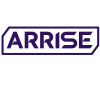Ask any HR Manager what they think about remote hiring, and most will have polar opposite opinions - either they love it or find it to be an incredibly painful process.
If you fall into the latter category, this blog is for you. Today, we will look at the top-7 remote hiring tips and tricks every manager should have up their sleeve:
Top-7 Remote Hiring Tips that Work Like a Charm
1. Opt for video live chat that offers unparalleled convenience:
Exchanging emails back-and-forth and phone calls have their own advantages, but the benefits of using a video chat tool outweigh the first two communication tools. Here's why:
-
Access to a greater talent pool cost-effectively, instantly, and in a seamless manner.
-
Ability to interview and screen candidates on a more personalized level.
-
Offers candidates and recruiters greater flexibility in terms of scheduling, the application process, etc., leading to better candidate-employer engagement.
-
Reduces the information gap as queries can be addressed in real-time and with greater accuracy.
-
Enables the use of intuitive features such as screen-share where candidates can showcase their talent instead of presenting dull and boring resumes.
Expert speak: Kazim Ladimeji from Recruiter summarizes the benefits beautifully:
"Use video hiring as standard at the first interview, which makes it easier for you to connect with top talent in a non-committal way. This approach is far more convenient for candidates, which means talented time pressurized candidates will be more likely to interview – and interview sooner – with first-round video interviewing than if they had to meet face-to-face.”
2. Evaluate key traits required for remote work:
It goes without saying that hiring talent for remote working purposes requires a different skill-set, experience, and personality altogether than office hires. Some key must-have skills recruiters should keep in mind include:
-
Excellent communication and collaboration: At this stage, it really helps to judge candidates on their written skills and understand how they express and coordinate through text and video.
-
Ability to work in an organized, decisive, and time-sensitive manner: Everyone understands that remote work comes with its fair share of cons - from burnouts to increased feelings of loneliness, the struggle is real. Therefore, recruiters looking for remote workers should test candidates on what their hobbies, interests, etc. look like outside of work and what rituals candidates follow to mentally log out of work. Plus, it helps to know the candidate's remote work style to gauge their commitment and capabilities towards the job at hand.
-
Self-discipline and a strong sense of accountability: The most productive remote workers are the ones that are self-driven and do not need constant monitoring/follow-ups. This is one of the most important traits recruiters should look for in the candidates.
If you're wondering how you can gauge the candidate's potential in these areas, then conduct pre-employment and personality tests such as the Myers & Briggs test, which offer great insights and an in-depth understanding.
3. Gauge video compatibility:
Pulling out another obvious but equally important advice: Test for your recruit's video compatibility. After all, not everyone is comfortable with video chatting - one of the prerequisites for remote work. If the candidate is not adept at handling it, remote work will become a herculean task for both the recruiter and the recruit. So better to avoid the whole song and dance about the job interviews at the beginning itself.
4. Best-practice for conducting video interviews:
“I think we do this [five stage recruitment process] to spend that time to get to know the person really well because once we are all working remotely, we don’t get the same amount of face-to-face time with each other. We meet each other twice a year, so it’s really important to us to make sure that we’ve got a good feel for the person before they start off with us. So for us, the difference with remote recruiting is really elongating that hiring process so we can get to know them all better.” - Sara Bent, People Ops Specialist at Hotjar
Like every other meeting, video interviews need prior planning to avoid any technical glitches or embarrassing "oh no" moments later on:
-
First things first, send out a detailed meeting invite stating all the information the candidate will need - from documents and interview time to portfolio and video link.
-
Plan for unpredictable emergencies such as poor connectivity, microphones/headphones not working, or what to do if there are power cuts. Having a backup plan is a must!
-
Conduct interviews in a professional, quiet set up so that everyone can focus and complete the process faster, without any interruptions.
-
Set up the meeting in a virtual room and show up before the candidate. Late-comers on either side is a no-go.
-
Set basic guidelines in place as to what the next steps will be - for the recruit as well as for yourself.
5. Post in the right portals and job boards
Sure, LinkedIn, Indeed, and other professional networking websites are great, but chances are, you won't find too many people looking for remote work on these portals. Instead, go for the right job portals, which are more targeted and diverse in terms of providing access to remote talent. Josh Pigford, Baremetrics' Founder, explains:
“I think job boards can be pretty useful in remote hiring, but not the really big ones like monster.com or Indeed. Usually, the quality of applicants coming from those is pretty low. Even job boards from Stack Overflow, and GitHub have typically not worked out that well. But I think that’s got a lot to do with our focus on hiring people who are good at working remotely. Basecamp has its own job board weworkremotely.com, and it’s great. The quality is pretty high there, and it’s from people who are familiar with remote working. It’s a skill set. You have to know how to work remotely.”
6. Key points to include in your remote job description
Nothing attracts the right talent, like a well-thought-out remote job description. Try including the following factors in your write up and hire smart:
-
Remote policy: Is your company “remote first,” “remote-friendly,” or a hybrid model? It helps to define the kind of remote working style you expect the candidates to work in.
-
Fact-driven story-telling: Even though we are in the 21st century, remote working is yet to become mainstream. So, it helps candidates to know why the position is remote or what your company's remote culture looks like.
-
Lay down the logistics rules: In this section, talk about key concerns such as the time zones your candidates are going to work in, what 'flexible hours' means according to the company's remote work policy, will the recruit have to travel to the company HQ, etc.
7. Create customized open answer-type questionnaires:
As mentioned earlier, remote work requires hiring managers to look beyond technical skills. This is where open-ended questionnaires can play a vital role. Here are a few questions Kevin Sheridan (Author of The Virtual Manager) suggests you should ask potential remote hires:
-
Were you ever in a situation where the manager was absent, and you had to make a decision? How did you approach the situation?
-
List three things you have learned within the last 12 months to improve yourself.
-
If you have a problem and don’t know the solution, what will you do?
-
Which communication channel do you prefer to stay in touch with your co-workers and supervisors?
-
Can you describe your remote office and virtual working style? How do you begin your day?
-
On what basis do you prioritize projects
Handy tip: Before hiring the recruit, engage in a paid virtual audition project so that both sides (employer and candidates) can judge if they're the right fit for each other.
Bonus material: Here's a super useful podcast that sums up the top tips for remote hiring, called "Recruitment On The Go."
There you go. Try these simple and handy remote hiring tips and hire smart, not fast.
8. Make use of recruitment software
Recruitment software is there to help you. Nowadays, most HR managers make use of it to boost the effectiveness of the recruitment process. It does require you to pay a certain sum, but it also saves so much time! And, in the long run, time saved = money saved. The initial investment is sure to pay off.
Depending on the type of software, the featured you can make use of will assist you with managing the interviews, tracking applicants, applying relevant online assessments, authorising documents throughout onboarding, analysing the effectiveness of your current recruitment methods and improving it, and more!
The programmes you choose will depend on your business's individual needs and be tailored to its size, industry, and goals. It's good to carry out thorough research before deciding on the subscription that will be tailor-made for you.
Author’s Bio: Srushti Shah is an ambitious, passionate and out of the box thinking woman having a vast exposure in Digital Marketing. She is working as a Digital Marketer and Content writer at Acquire. Her key focus is to serve her clients with the latest innovation in her field leading to fast and effective results. Working beyond expectations and delivering the best possible results in her professional motto. Other than work, she loves traveling, exploring new things, and spending quality time with family. Reach out to Srushti Shah on Twitter or LinkedIn









































Charles Mukururo1y ago
Am ready to relocate from Kenya with my family
Am ready to relocate from Kenya with my family